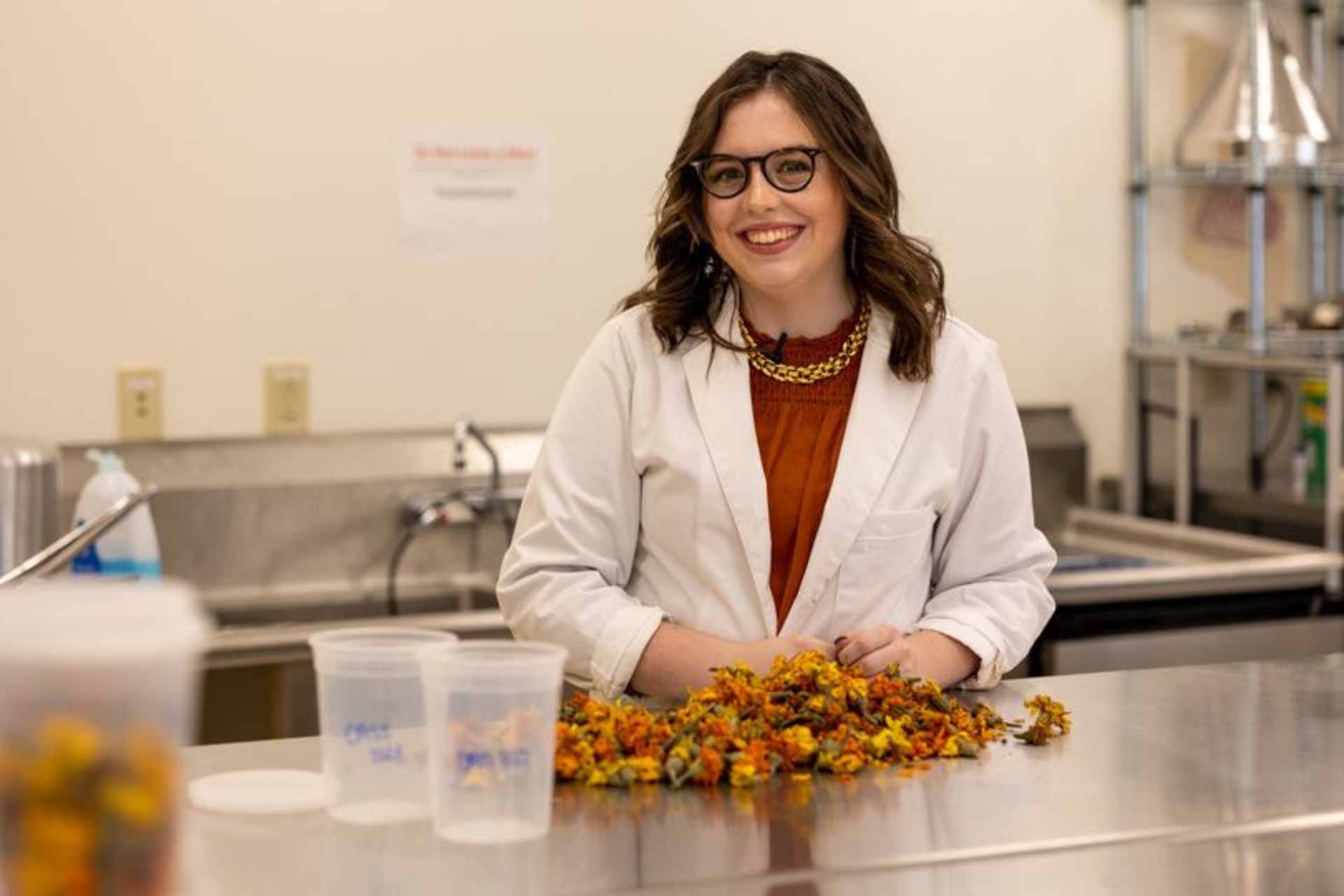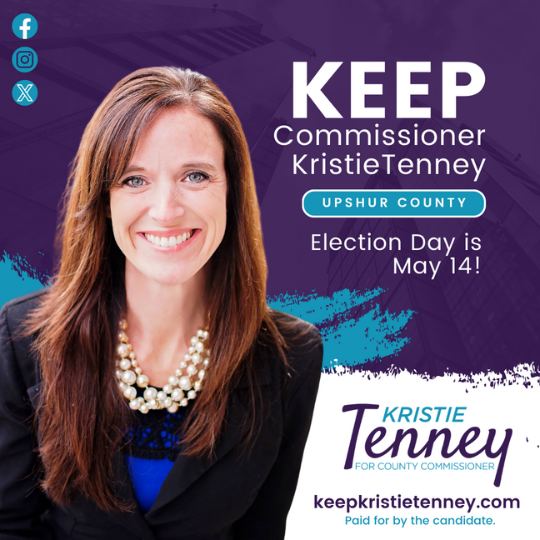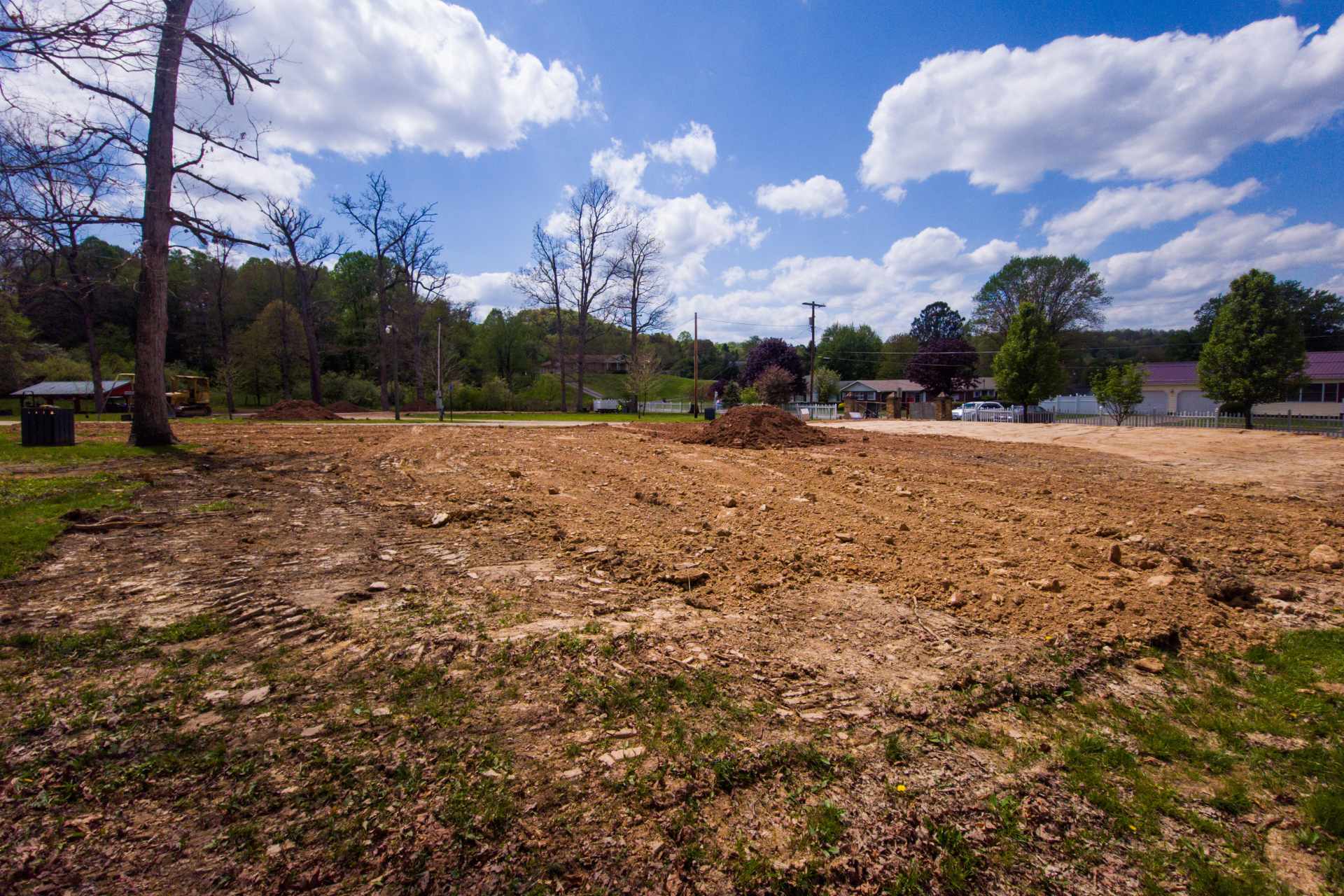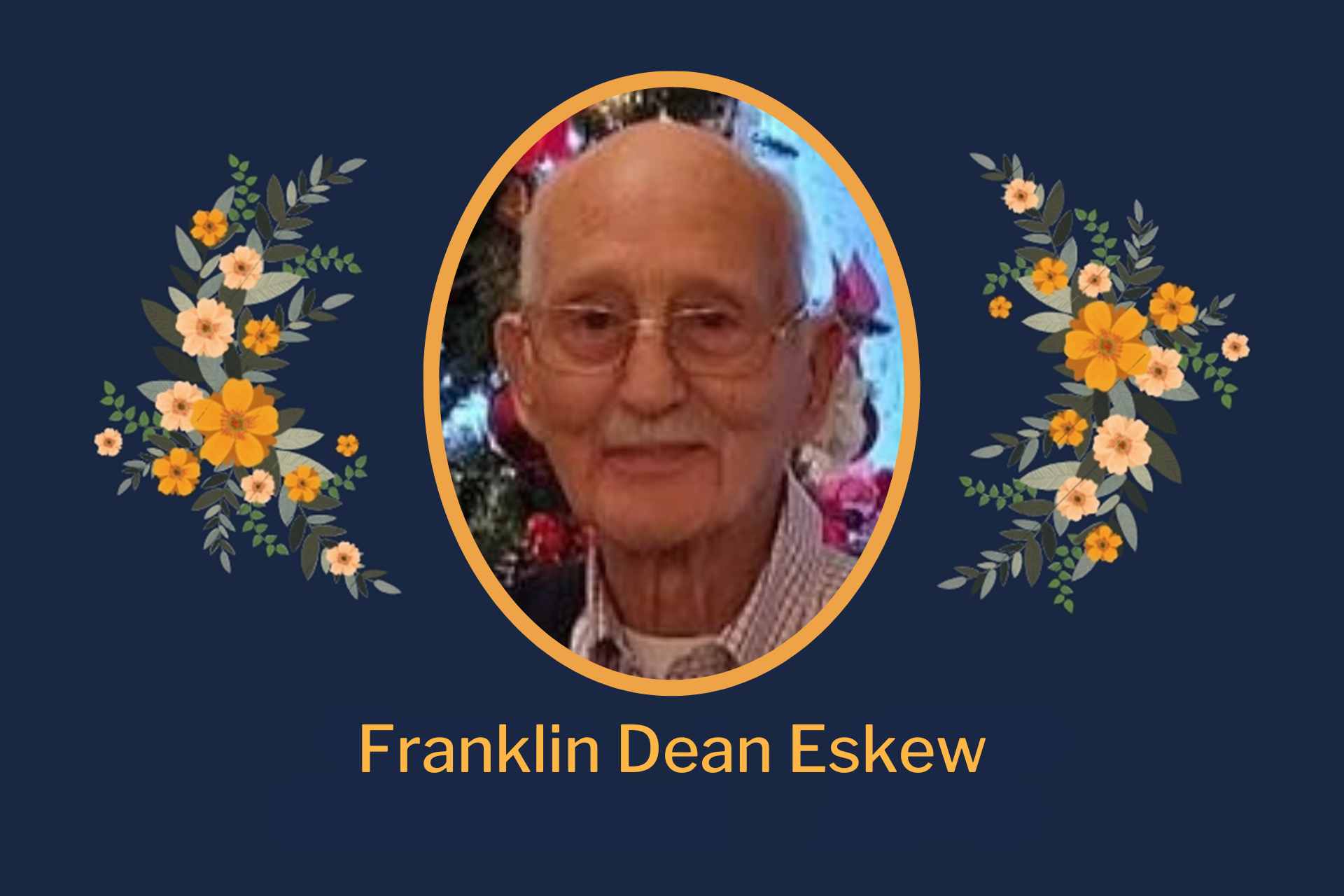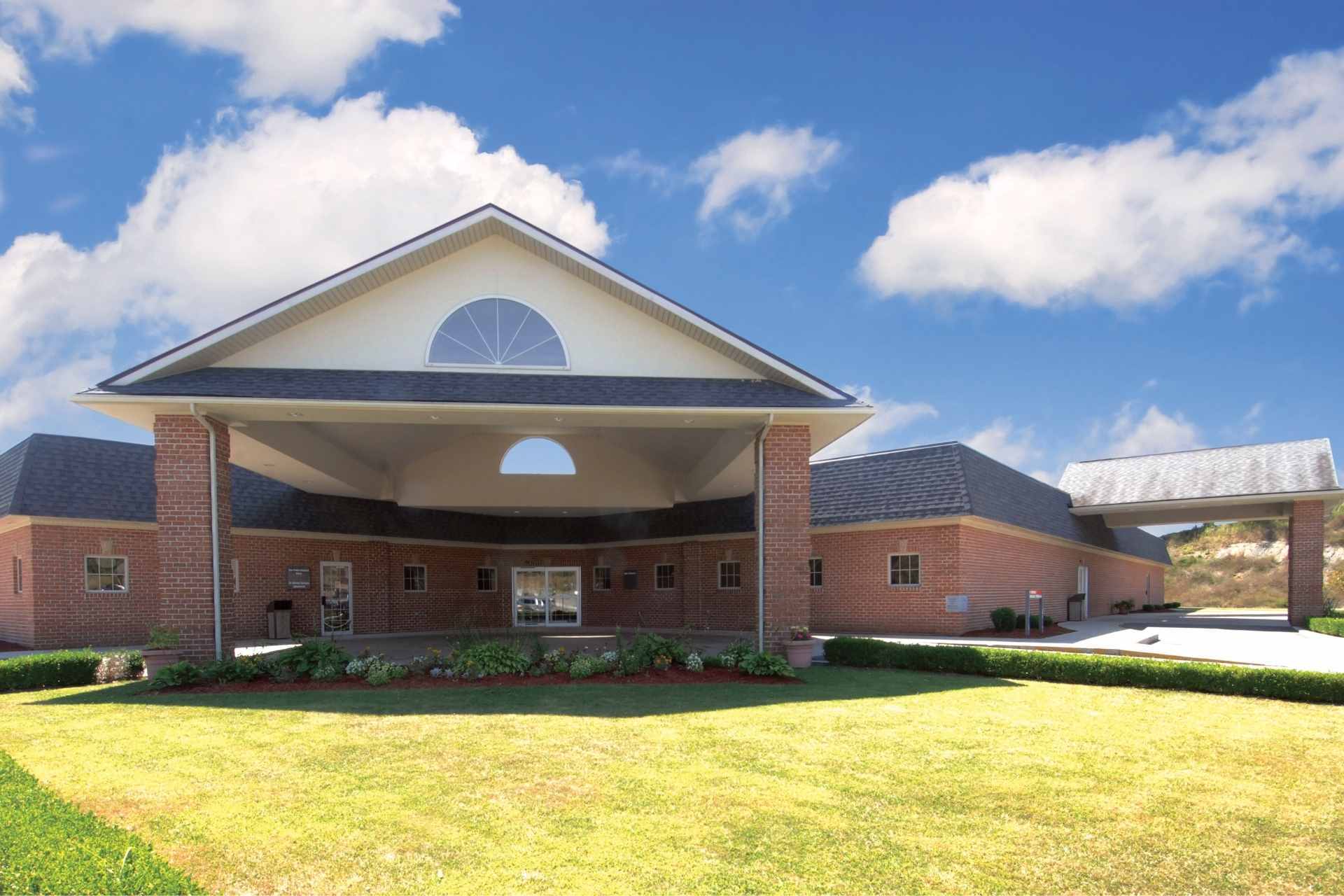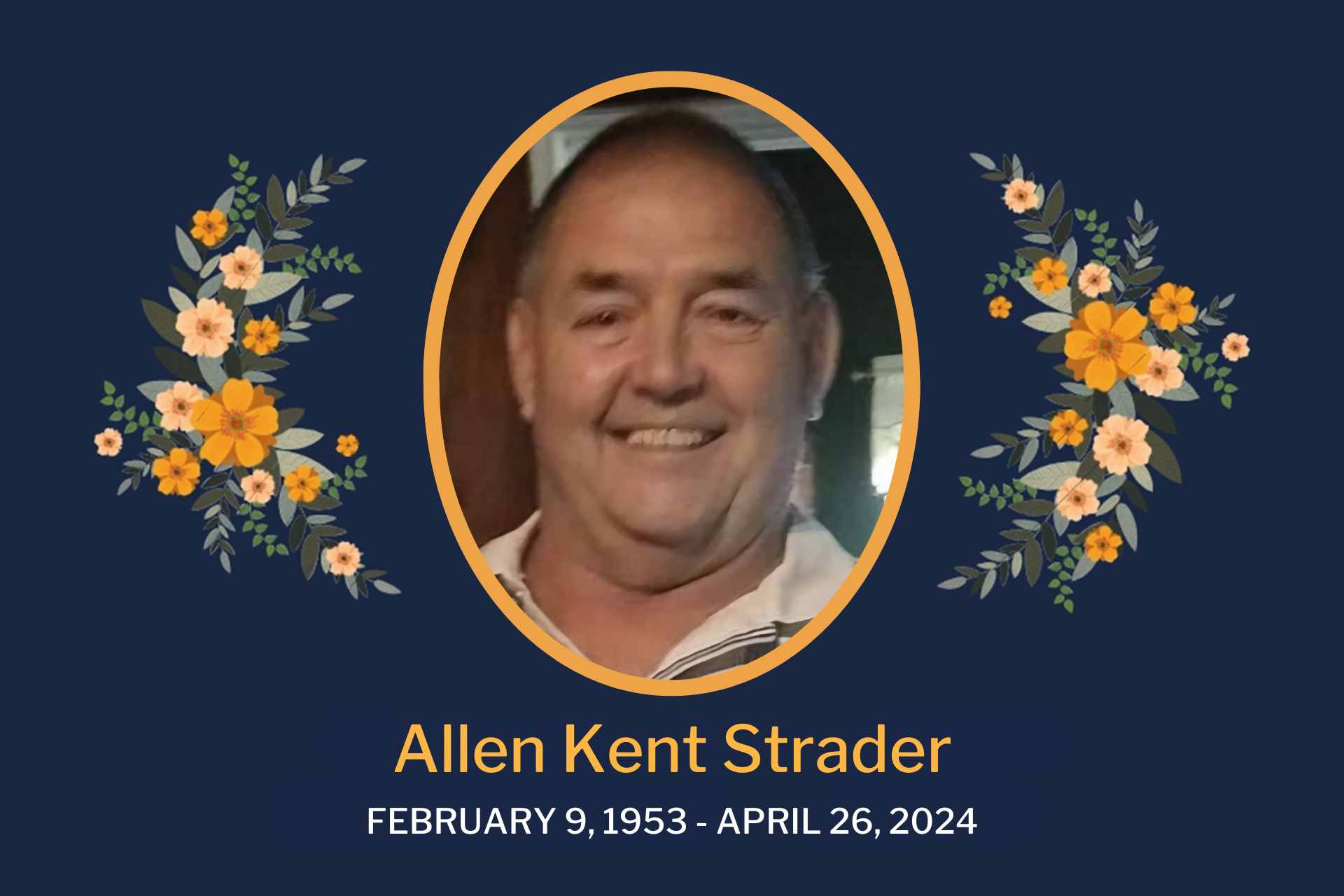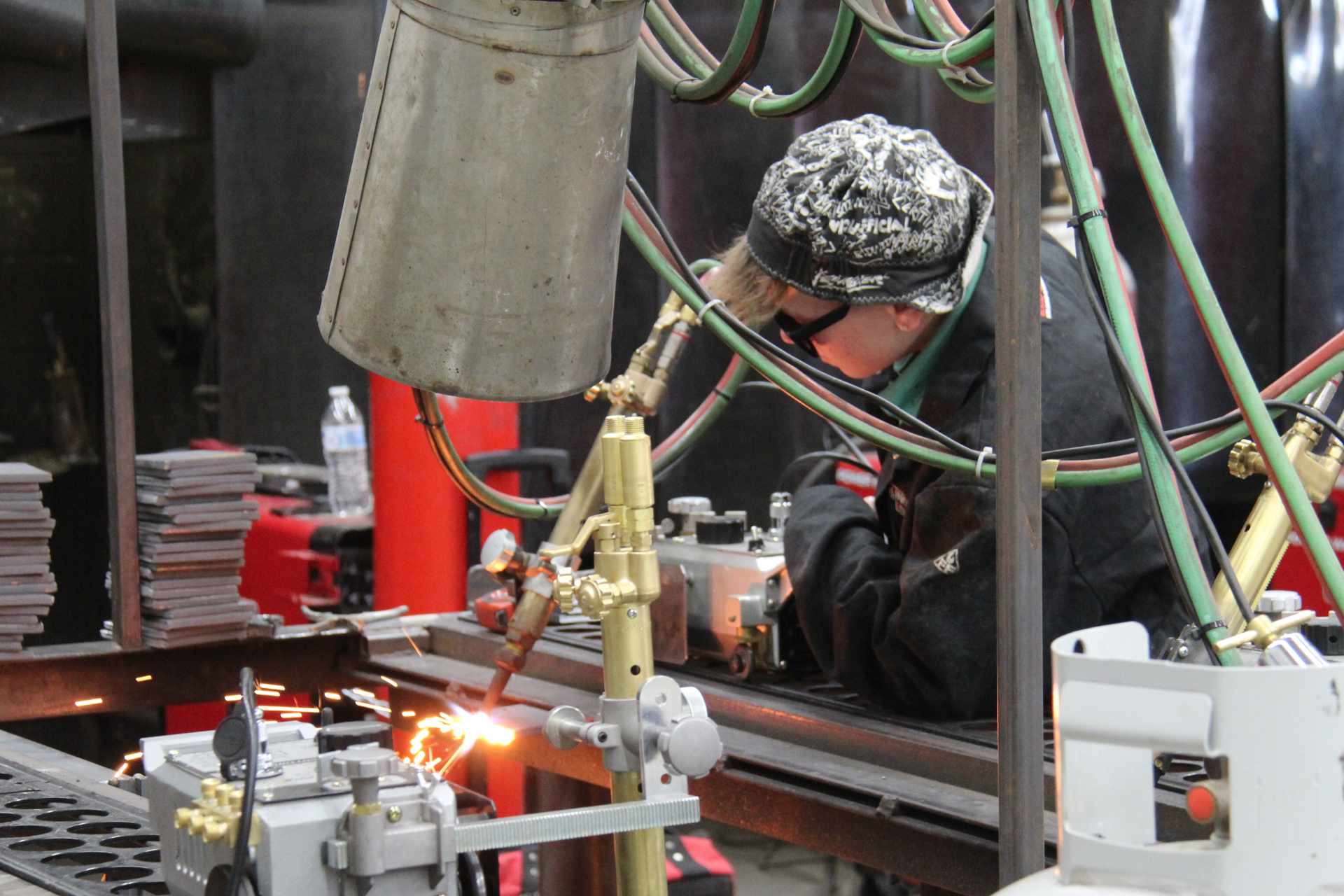Sometimes planting a seed can lead to more growth than you ever expected. West Virginia University graduate student Cassandra Stewart is the perfect example of that. Seeds from WVU Extension’s Grow This program led Cassandra, a graduate research assistant studying design and merchandising in the Davis College of Agriculture, Natural Resources and Design, to make textiles using natural dyes from flowers she grew.
After receiving a raised garden bed for Christmas in 2022, Cassandra’s sister Kate wanted to try growing a garden. Kate saw an advertisement for the WVU Extension Family Nutrition Program’s Grow This seeds and signed up to receive seeds for cosmic purple carrots, red ursa kale and miniature mixed color bell peppers.
Growing up in Kanawha County, Cassandra and Kate’s grandfather always had a big garden and the girls dreamed they would one day have a green thumb just like their grandfather. That dream became a reality when they planted the Grow This seeds, starting their gardening journey. The Grow This program encouraged and inspired them to grow different plants, including tomatoes, zucchini, squash, lemon cucumbers, pole beans and lettuce, in addition to the seeds provided by Extension, Kate explained. She also planted marigolds, to deter animals.
One day, in her weaving and textiles development class, Cassandra told her professor and research assistant Jordon Masters about the garden she and her sister were growing.
“He told me that marigolds can be used for natural dyeing,” Cassandra said. “I was interested in learning how to naturally dye and how I could use the marigold dye on my wool textiles.”
But first, Cassandra had to make sure her sister would not mind if she cut off their flowers to take to the textile lab. Thankfully, Kate agreed, and over the next few weeks, Cassandra accumulated several bags of marigolds.
Her farm-to-fashion work took shape at the Amy A. Bircher Textiles Laboratory, located in the WVU Davis College.
“Throughout the summer, Cass would stay longer and longer each time she came into the textile lab to learn more,” Masters said. “Seeing the pieces connect with a student, how they intersect with each other, and how they can all be applied to textiles, fashion and design is great to see.”
For her final project in Masters’ class, Cassandra used her new skills to make a table runner for her sewing room.
“This project has a lot of personal value to me. My grandma taught me to sew when I was little. She was one of my biggest supporters and that has led me to where I am now,” Cassandra said. “For my project, I am going to be using fabric from my grandma’s stash, leather scraps from Tanner’s Alley, and wool that I have spun and dyed yellow using the marigolds.”
Textiles aren’t the only thing Cassandra got from her garden, of course. She also made a variety of dishes from the produce she grew, including her favorite dessert, carrot cake.
With a bachelor’s degree in fashion, dress and merchandising and a minor in disability studies, Cassandra hopes to stay in Morgantown after she graduates in May and one day open a clothing store that sells adaptable clothing for people with disabilities.
While she waits for those plans to sprout, Cassandra and her sister are eagerly anticipating and actively developing a plan for this year’s garden.
“My sister and I plan on participating in Grow This 2024 since we had so much fun with it last year,” Cassandra said.
WVU Extension Family Nutrition Program’s work is supported by the Supplemental Nutrition Assistance Program (SNAP) from the USDA Food and Nutrition Service.
If you want to learn more about WVU Extension, extension.wvu.edu or follow @WVUExtension on Facebook, YouTube, Twitter and Instagram.
